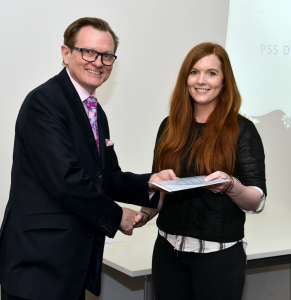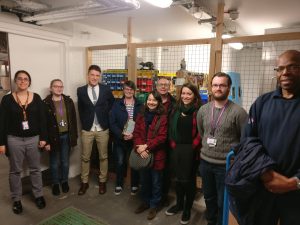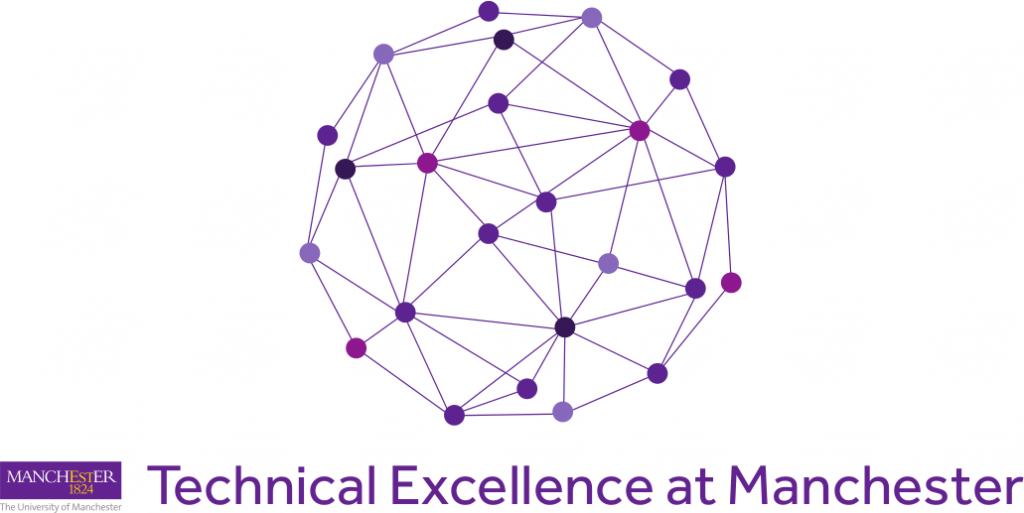Faculties and all individual members of staff are invited annually to nominate colleagues for a Professional Support Services, Library and Cultural Institutions’ Distinguished Achievement Award.
One of 2017’s runners-up is Neil O’Hara, FBMH. Congratulations!
Here is an excerpt from Doctor Elena Bichenkova’s interview on her winning nominee.
What do you think are the qualities that make for a successful technician in your research group?
The qualities that make for a successful technician in any research group include excellent professional performance and high level of competence in every aspect of professional activity, as well as the ability to transform the working environment by providing a safe, well-functioning and highly efficient professional setting for academics, researchers and students to allow them achieving outstanding organisational benefits.
What qualities do you think merit a Distinguished Achievement Award?
From the Guidance on the Profession Support Services, Library and Cultural Institutions’ Awards: ‘Specifically, nominations should evidence how the individuals or teams have significantly and tangibly contributed to maintaining a positive, open and respectful working environment where people work cooperatively together, have excelled at breaking down boundaries and communicating fully to achieve outstanding organisational benefits’.
What made you nominate Neil?
My nomination of Neil for a Distinguished Achievement Award was based on three main criteria:
(i) Outstanding Professional Performance
From the very beginning of his work in the Division, Neil became known as an exceptionally skilled, knowledgeable and proactive technician, who was recognized for his outstanding professional abilities not only by his PSS colleagues, but also by research & academic staff and postgraduate research students. Neil is one of the most motivated, enthusiastic and hard-working technicians, with a high level of commitments and wiliness to support the most vital areas of research activity within the Division/School/Faculty. He simply does not have any fear or barriers for learning any analytical techniques or experimental methods since he possesses a natural ability and desire for learning by being exposed to new exciting challenges.
(ii) Excellence in Maintaining Safe Working Environment
Neil is responsible for carrying out the maintenance of the NMR instrumentation in the Division is an intellectually demanding, technically challenging and potentially dangerous task, and he does it in a safe, professional and responsible manner. Neil is responsible for providing both safety and professional training for every single new NMR user, including PhD student and research staff, to ensure that they can operate instruments knowledgably, efficiently and safely at all times.
(iii) Evidence of Excellence in Providing Training
From personal observations and from informal communications with the PhD students and researchers, it is evident that Neil provides an excellent training and experience on the basis of quality of information, approachability and willingness to help. In every instance Neil behaves in a professional, committed and patient manner, using a wise and tolerant approach while helping his younger colleagues to resolve any difficult situation (either technical or scientific). He always takes time to explore any difficult issues with PhD students, breaking the complicated concepts down to the fundamentals until they grasped the underlying science or technical issues.
Why do you think it is appropriate to have these awards?
It is very important to have these awards because it is very easy to spot domains that need improvement and miss areas which are running perfectly. The Distinguished Achievement Awards allow us to recognise this and celebrate the work that has been carried out superbly and show that all these invaluable efforts are appreciated and recognised by staff and the University.
Here are a few words from Neil.
Could you provide a very brief history of your career here at Manchester i.e., where & when did you start, where have you been since starting and where & what are you doing now?
After working for 10 years in a number of industrial roles I started my career with the University of Manchester. In Jan 2010 I started working within the QC group at the WMIC. In Jan 2014 I moved to my current role of Instrument technician here at the Division of Pharmacy and Optometry working for Prof Anna Nicolaou’s group and Dr Elena Bichenkova. My current role uses a lot of my past experiences of using numerous instrumentation techniques to help maintain the equipment and to train staff and students in its use.
What does the achievement award mean to you?
It was a bit of surprise to be nominated for the award. I think I am an approachable person and will always try to help out others where I can around the building, I just see that as part and parcel of the role I perform here at the university. It’s nice that my colleagues felt that I deserved recognition and took the time to write such nice things on the nomination form, it means a lot to me so I would like to thank them for that.
What would you say is your greatest achievement since starting at the University & what are your plans for the future?
Each day I have the usual little wins, whether it fixing a problem with an instrument or finding a new way to solve a problem. I take each of these wins as a mini-achievement.
Since starting at the University a lot of things have changed in my life, I now have two little ones, Amy who is 5 and Callum who is 1. They keep me on my toes and I don’t think anything could top them as my greatest achievement (although there are days!!).
Future plans are just to keep on doing what I am doing, I get to take on new challenges as my role evolves to new things and I get to meet and work with lots of great staff and students.
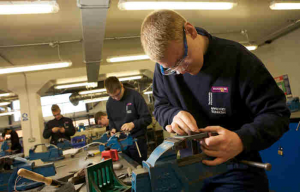 The University has received an Apprenticeships 4 England Bronze award for its Technical Apprenticeship Programme.
The University has received an Apprenticeships 4 England Bronze award for its Technical Apprenticeship Programme.
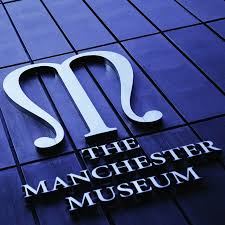 On 23rd March 2017, members of TEaM had the opportunity to attend a behind the scenes tour of Manchester Museum. The two sessions were hosted by Dean Whiteside, Buildings and Operations Manager. Excitingly, the tour groups were able to see “back of house” at the museum, i.e. what the visitors do not get see.
On 23rd March 2017, members of TEaM had the opportunity to attend a behind the scenes tour of Manchester Museum. The two sessions were hosted by Dean Whiteside, Buildings and Operations Manager. Excitingly, the tour groups were able to see “back of house” at the museum, i.e. what the visitors do not get see.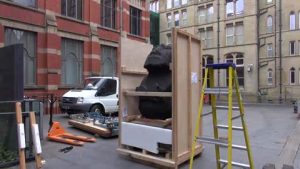 to the actual logistics involved in obtaining artefacts for the museum, such as the massive Easter Island statue and the reinforced floor! They also got to see the workshop where all of the display plinths are made for all of the exhibitions.
to the actual logistics involved in obtaining artefacts for the museum, such as the massive Easter Island statue and the reinforced floor! They also got to see the workshop where all of the display plinths are made for all of the exhibitions.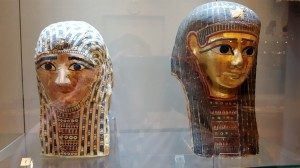 , archaeologists, artists, book and film writers, to name but a few. The tour group also got the opportunity to meet members of the Entomology Department and the Restoration Department, who were busy preserving an Egyptian mask, (inset, left hand side).
, archaeologists, artists, book and film writers, to name but a few. The tour group also got the opportunity to meet members of the Entomology Department and the Restoration Department, who were busy preserving an Egyptian mask, (inset, left hand side).


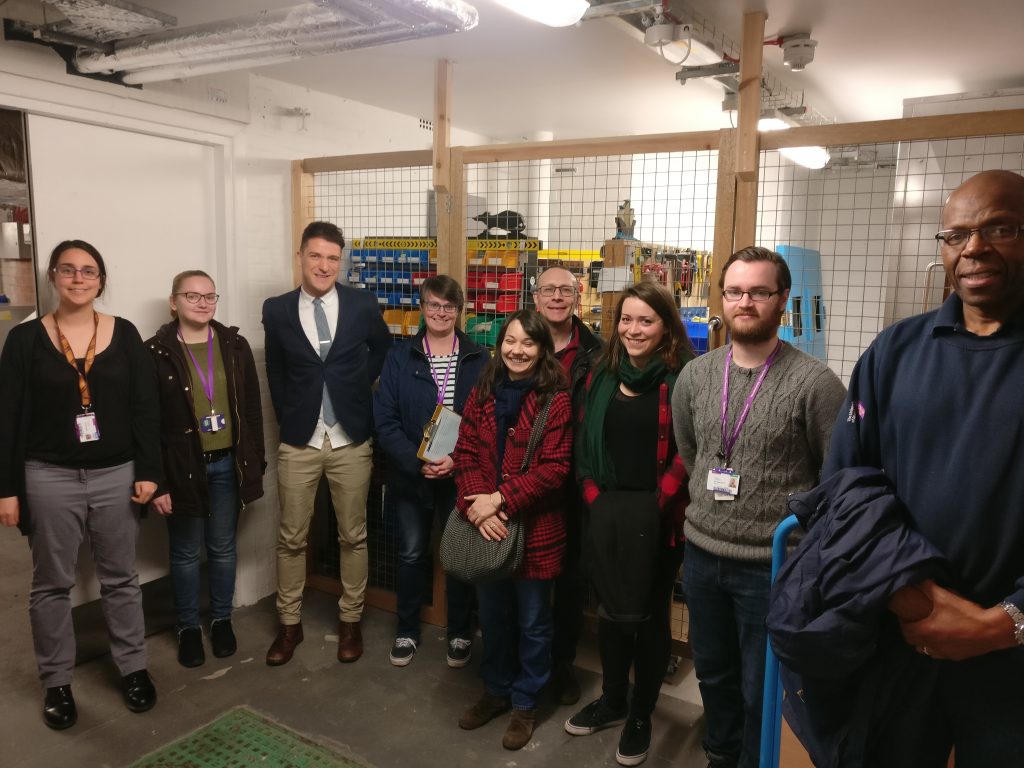
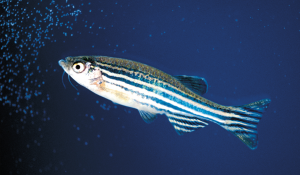 The past decade has seen an increasing trend of Zebrafish usage in biomedical research leading to increased pressure on animal technicians to breed them efficiently and improve juvenile survival rates. With this end in mind, David Mortell, an aquatics technician at BSF, conducted a Zebra Fish feeding trial involving 420 fish over 2 months. David published his work as a poster which he then went on to present at the Institute of Animal Technology (IAT) national congress in March 2017.
The past decade has seen an increasing trend of Zebrafish usage in biomedical research leading to increased pressure on animal technicians to breed them efficiently and improve juvenile survival rates. With this end in mind, David Mortell, an aquatics technician at BSF, conducted a Zebra Fish feeding trial involving 420 fish over 2 months. David published his work as a poster which he then went on to present at the Institute of Animal Technology (IAT) national congress in March 2017.